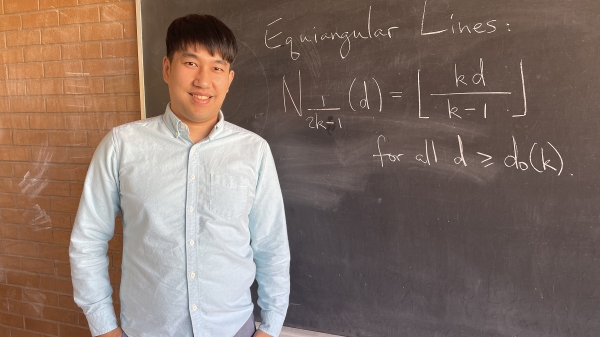A new initiative from the Department of Defense will establish ASU as the Western node of an effort to create a world-leading manufacturing hub for new medical cures and healing the wounded based on the promising advances of regenerative medicine.
In December 2016, the Department of Defense (DoD) announced the award of an Advanced Tissue Biofabrication Manufacturing Innovation Institute (ATB-MII) to a nonprofit, public-private venture called the Advanced Regenerative Manufacturing Institute (ARMI). ARMI will utilize $80 million in federal funding and more than $200 million in cost share to support the development of tissue and organ manufacturing capabilities. ARMI brings together nearly 100 partner organizations from industry, government, academia and the nonprofit sector to develop the next-generation manufacturing processes and technologies for cells, tissues and organs. As leader of the Western node, ASU is ARMI’s primary academic partner in the Southwest.
Working with ARMI’s other partners, ASU will tackle the challenge of restoring form, function and appearance to the nation’s wounded warfighters by advancing the state-of-the-art in engineered tissue manufacturing. Patients requiring organ transplants or suffering from chronic degenerative diseases will also be among those who benefit from the ability to grow human tissues and organs for the first time on an industrial scale.
“We are privileged to be a part of this groundbreaking initiative that holds the potential to save and dramatically enhance lives through the reimagining of our approach to the treatment of the wounded and chronically ill,” said ASU President Michael M. Crow. “ASU’s status as a transdisciplinary powerhouse in service to our local, national and world communities will be leveraged as ARMI’s Western node. We are committed to producing results by convening corporate and university entities to develop effective solutions to regenerative medicine issues; designing programs that will train tomorrow’s leaders in this field; and building out this undertaking to its full potential, advancing the manufacturing industry and stimulating economic development as results.”
Headquartered in Manchester, New Hampshire, ARMI is the 12th Manufacturing USA Institute. Under the umbrella of Manufacturing USA, a public-private network that invests in the development of world-leading manufacturing technologies, ARMI will work to integrate and organize the fragmented collection of industry practices and domestic capabilities in tissue biofabrication technology in order to better position the U.S. relative to global competition.
“My whole life, I’ve tried to take cutting-edge technology and turn it into something useful for people,” said inventor Dean Kamen, ARMI’s chairman, at the December White House press conference announcing the ARMI award. “We need to develop 21st-century tools for engineered tissue manufacturing that will allow these innovations to be widely available — similar to how a 15th-century tool (the printing press) allowed knowledge to spread widely during the Renaissance.”
The ASU-led Western node will expand the ARMI consortium to include local and regional industrial, health care and government partners, including Pinnacle Transplant Technologies, C.R. Bard, WL Gore and several of the federal National Institute of Standards and Technology-funded Manufacturing Extension Partnerships, a national network that enhances the manufacturing performance of small and medium-size companies.
The ASU role is expected to grow further as new proposals are awarded by ARMI, and other industrial, academic or health care partners invest in the effort.
“As an ARMI partner, ASU brings the expertise of our renowned engineering and Biodesign Institute researchers along with the ability to rapidly translate research into meaningful and far-reaching impact,” said Sethuraman Panchanathan, executive vice president of Knowledge Enterprise Development and chief research and innovation officer at ASU.
Every day in the U.S., 22 people die on the waiting list for organ transplants, and each year more than 1 million people are in need of a new heart valve, heart, kidney, lung, pancreas, liver, cornea, skin, tendon or bone. The promise of regenerative medicine is that replacing organs will result in more expeditious and advanced cures that will improve health outcomes while ultimately reducing costs.
Biofabrication is a complex, innovative manufacturing industry segment at the intersection of biology-related research, computer science, materials science and engineering that is creating state-of-the-art manufacturing innovations in biomaterial and cell processing, bioprinting, automation and nondestructive testing technologies for critical DoD and novel commercial use.
ARMI will integrate the diverse and fragmented collection of industry practices and institutional knowledge across many disciplines to realize the potential of a robust biofabrication manufacturing ecosystem. Technologies ripe for significant evolution are high-throughput culture systems, 3-D biofabrication technologies, bioreactors, storage and preservation methodologies, nondestructive evaluation, and real-time monitoring and in-line sensing devices.
Technological advances are desperately needed by the nation’s warfighters to overcome severe injuries, nerve damage and the loss of limbs, and to reduce the cost of the U.S. health care budget, where a significant portion is allocated to managing chronic diseases like end-stage renal failure and diabetes, for which there are no cures.
Initially, this newly invigorated high-tech industry sector will provide important benefits to the nation’s warfighters, help strengthen the economy, and ensure that the innovations needed to develop, manufacture and commercialize cutting-edge processes and materials are built in America.
The launch of the Advanced Regenerative Manufacturing Institute is one in a series of manufacturing innovation institutes, each with a distinct technology focus. These institutes aim to leverage industry, academia and government resources to address industry-relevant advanced manufacturing challenges and secure the future of manufacturing in the United States through innovation, education and collaboration.
For more information on ARMI, visit www.ARMIUSA.org.
More University news

Professor recognized with prestigious award for mathematical excellence
Zilin Jiang, assistant professor jointly in the School of Mathematical and Statistical Sciences and the …

Unraveling molecular mysteries
Imagine being able to see something as tiny as a single molecule, which is a billion times smaller than a meter. Now imagine…

ASU researcher awarded $1.25M to develop programmable, targeted drugs
In a significant stride for medical research, Hao Yan, a professor in Arizona State University’s School of Molecular Sciences and…